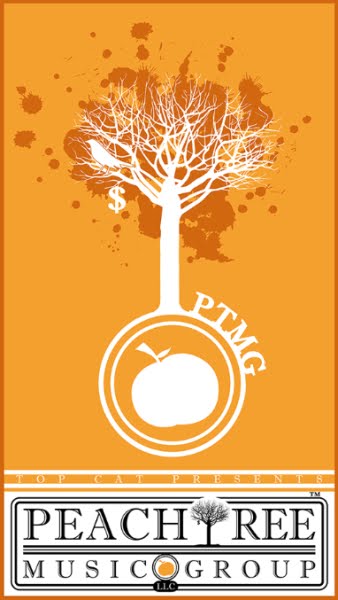ATLANTA, Jan. 21, 2014 /PRNewswire/ -- In 1948 during the signing of the U.N. Charter, a World Media Council was planned that eventually became a Media Conglomerate, and a World Media Distribution plan was born in the interest of the unification of world media to enhance the distribution of media and television projects.
One World Media entered into a 157 movie deal worth 19.46 Billion dollars with Sheffield Marketing Group, the silent partner behind some of the largest marketing projects in the world. The two companies are coming together in the interest of Global Economic Recovery to meet what was thought to be an unrealistic goal of 98% employment in the Entertainment Industry.
One World Media and Sheffield Marketing Group are in meetings to determine which companies will be the recipients of project funds. Some of the companies being considered include:
- DreamWorks SKG
- DreamWorks Animation
- Overture Films
- Screen Media Films
- Pacific International Enterprises
- IFC Films
- Vision One Media
- Hannover House
- Spiderwood Productions
- Vivendi Entertainment
- Tyler Perry Studios
- 20th Century Fox
- 20th Century Fox Animation
- Fox Searchlight Pictures
- Fox Atomic
- Metro-Goldwyn-Mayer Animation
- Orion Pictures Corporation
- American International Pictures
- Filmways
- Focus Features
- Rogue Pictures
- Paramount Vantage
- Screen Gems
- Destination Films
- Castle Rock Entertainment
- Walt Disney Pictures
- Marvel Studios
- Touchstone Pictures
- Hollywood Pictures
- Miramax Films
- Artisan Entertainment
- The Weinstein Company
- Troma Entertainment
- Elevating Entertainment Motion Pictures
- Gener8Xion Entertainment
- Promenade Pictures
- Sherwood Pictures
- PolyGram Filmed Entertainment
- Trimark Pictures
- Samuel Goldwyn Films
- Magnolia Pictures
- Uncommon Productions
- American Technologies
- Friendware
One World Media and Sheffield Marketing Group also plan to hold the 1st Annual Global Media Awards with categories such as
- Largest Sponsor
- Best overall concept
- Best Innovations
- Most Humanitarian and Historical value
- Realism
- Quality of Special Effects
We are told the award show will be a two day event because of the vast variety of talent to recognize and the total amount of awards to be given.
One World Media is currently holding a Worldwide Talent Search looking for Models, Actors and Actresses, Comedians, Dancers, Writers, Rappers, Singers, etc. for a host of Action Movies, Comedies, Sitcoms, and all things Entertainment. 2014 is going to be an exciting year!
All participants will need to register to receive placement in major upcoming projects funded by the two powerhouses. Registration also includes vouchers for aspiring artists to use on Photo shoots (to include hair and makeup), Complete EPK'S, Bio's, etc.
Investors and Program Sponsors are also encouraged to register to become eligible for The Global Media Awards Ceremony.
********************Must be enrolled to be nominated********************
For more information: email us!
To register for registration@one-worldmedia.net
For Job Placement and intern opportunities casting@one-worldmedia.net
Please visit One World Media Facebook Pg. For Entertainment Job listing Listings.
To book appointments for an audition send an email with your press kit (8x10 Head Shot, Autobiography, Demo Reel or links to YouTube, oneworldmediaatlanta@gmail.com
Funding resources provided for The Global Economic Recovery Council by U.S. Capital Funding II Series Trust I. http://www.reuters.com/article/2011/06/13/idUS105078+13-Jun-2011+BW20110613#!
http://www.youtube.com/watch?v=8aQdpZQ-VwQ http://www.youtube.com/watch?v=n-Dnq_sgdKo
Find us on LinkedIn at: http://www.linkedin.com/pub/hrh-robert-fowler/17/560/b34
Follow us on Twitter at: www.twitter.com/djcasanovany
To register for registration@one-worldmedia.net
For Job Placement and intern opportunities casting@one-worldmedia.net
Please visit One World Media Facebook Pg. For Entertainment Job listing Listings.
To book appointments for an audition send an email with your press kit (8x10 Head Shot, Autobiography, Demo Reel or links to YouTube, oneworldmediaatlanta@gmail.com
Funding resources provided for The Global Economic Recovery Council by U.S. Capital Funding II Series Trust I. http://www.reuters.com/article/2011/06/13/idUS105078+13-Jun-2011+BW20110613#!
http://www.youtube.com/watch?v=8aQdpZQ-VwQ http://www.youtube.com/watch?v=n-Dnq_sgdKo
Find us on LinkedIn at: http://www.linkedin.com/pub/hrh-robert-fowler/17/560/b34
Follow us on Twitter at: www.twitter.com/djcasanovany
One World Media: The One World Media website is currently under reconstruction. We will issue a press release prior to its unveiling. It will be an unforgettable experience.
One World Media An irrevocable Express Trust under Common Law
6555 Sugar Loaf Parkway, 307-113
Duluth GA 30097
HRH Robert Fowler
Tel. 678-920-5701
trustee@one-worldmedia.net
6555 Sugar Loaf Parkway, 307-113
Duluth GA 30097
HRH Robert Fowler
Tel. 678-920-5701
trustee@one-worldmedia.net












